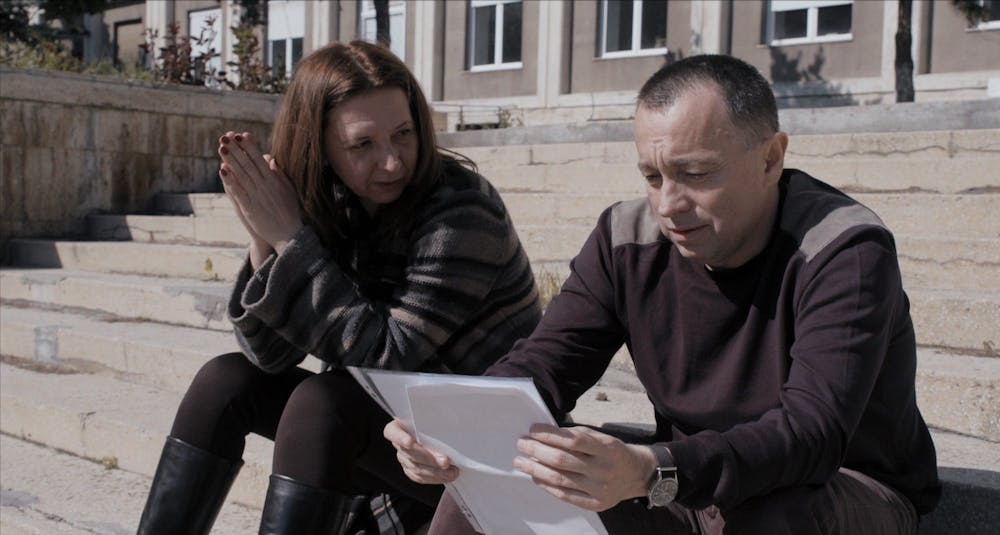The Oscar-nominated “Collective” is one of the most riveting documentary films in recent memory.
Alexander Nanau’s Romanian feature provides an observational look at the political and societal fallout that happened in the wake of a devastating nightclub fire. The incident killed 27 people and led to 37 additional deaths due to mismanagement in the following weeks.
"Collective" is nominated in the categories of Best International Feature Film and Best Documentary Feature.
Nanau tells this story through three main perspectives: the journalists reporting the issues, the politicians dealing with policy consequences and the victims of the fire. Through this three-dimensional account, Nanau is able to effectively convey the deep complexities and consequences of a major societal event.
The story is shocking and disturbing, becoming even more so as the lurid details gradually unfold. Nanau immerses us from the beginning, immediately highlighting the tragedy at hand through poignant clips of the victims’ families. Throughout the runtime, the scope grows broader and our emotions as viewers grow stronger. This culminates in an emotionally powerful conclusion that, like the opening, emphasizes the human cost of injustice.
Nanau’s scene-to-scene approach is the most effective aspect of “Collective.” There are no talking-head interviews and no extraneous sounds or music. Each moment is told in a direct, fly-on-the-wall format that is consistently engaging. The simplicity of the approach makes the tragedy feel much more urgent and real.
Another net result of the approach is that the film demands our attention at every moment. The untouched and present-tense telling of events keeps the film from ever talking down to the audience, allowing us to witness the horrors and societal challenges without any undue editorializing in how we see the story play out.
Because of this mostly objective approach, it feels as though we are watching events occur in reality — with unpredictable stakes and terrifying implications. Instead of letting the action take a break with a filmmaker’s interjection of produced graphics or non-diegetic music, we remain firmly in the film’s world – Nanau lets the events speak for themselves.
The most striking arena in which these impartial events occur on camera is in scenes that focus on journalists. Instead of simply seeing the finished product and having the facts reported to us, we see the tumultuous and meandering process of finding the truth. The frank presentation of this crucial process adds even more to the power of the film.



